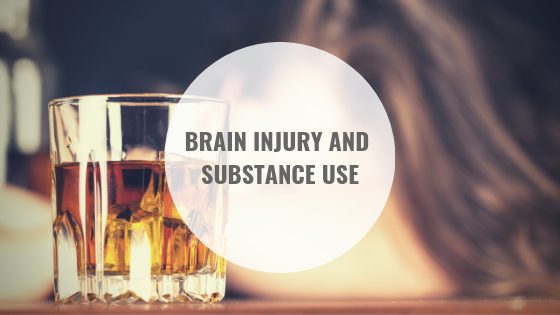Julie Entwistle, MBA, BHSc (OT), BSc (Health / Gerontology)
Co-written with Ashley Best, Student Occupational Therapist
As clinicians working in the community with clients who have a brain injury, we all too often see the challenges of recovery impacted by the use of illicit drugs and alcohol. And while we treat both the brain injury and substance use as they impact function and the ability to participate in life roles, we often wonder, which came first?
Statistics show that individuals with brain injuries have higher rates of substance use than the general population. However, statistics also show that individuals with brain injuries have higher pre-injury rates of substance use. While this does not explain a “causal relationship” or answer the “which came first” question, we know the interplay is complicated and that acquiring a brain injury can change the way the brain processes information which may influence substance use behaviours and patterns.
Here are some examples of how this can happen:
- Cognitive Changes: Having a brain injury can result in cognitive changes from mild to severe difficulties with memory and concentration, communication, processing speed, problem-solving, and more.
- Emotional and Personality Changes: A brain injury can also result in emotional and personality changes such as impulsivity, irritability, and lack of insight.
The changes and symptoms mentioned above occur as a result of injury to the brain’s frontal lobe. The frontal lobe is responsible for more complicated cognitive processes. It helps us to problem solve everyday challenges and consider the positive and negative impacts of our decisions. When a person hits their head or is jolted quickly, the frontal lobe will often impact against the skull – bruising, damaging, and disrupting the connections between the brain cells in this region.
So how does this relate to substance use?
Well, there are reward pathways in the brain which react and process substance use triggers and the associated emotional response. These pathways respond to the positive feelings associated with substance use and strengthen the more the substance is used, telling the brain to seek more. These pathways recognize triggers of substance use and respond by sending the “craving” to the frontal lobe. The frontal lobe determines whether or not the substance will be sought after, and if so, how the substance will be obtained and used.
When we think about individuals with brain injuries and associated cognitive and emotional challenges, we can see how if a person has difficulty with impulsivity, for example, then ignoring a craving may be more difficult than it would be pre-accident. In addition, when a person with a brain injury decides to engage in substance use, challenges such as poor planning and problem-solving may make the use even more unsafe.
Though we may not have evidence to connect brain injury to substance use directly, the cognitive changes in the brain are likely to make managing, using and even recovering from substance use much more difficult.
So now that we have talked about how substance use behaviours and patterns may change after acquiring a brain injury, the question remains, What can be done to help an individual who has both a brain injury and problems with substance use? This question will be answered in part 2 of our blog post: The Comorbidity of Substances and ABI – the Role of the OT…stay tuned!
References:
Bjork, J. M. & Grant, S. J. (2009). Does traumatic brain injury increase risk for substance abuse. Journal of Neurotrauma, 26, 1077 – 1082.
Ilie, G., Adlaf, E. M., Mann, R. E., Ialomiteanu, A., Hamilton, H., Rehm, J.,… Cusimano, M. D. (2015). Associations between a history of traumatic brain injuries and current cigarette smoking, substance use, and elevated psychological distress in a population sample of Canadian adults. Journal of Neurotrauma, 32, 1130 – 1134.
West, S. L. (2011). Substance use among persons with traumatic brain injury: A review. Neurorehabilitation, 29, 1 – 8.
WETA. (2017). Facts about concussion and brain injury. Retrieved from https://www.brainline.org/article/facts-about-concussion-and-brain-injury

